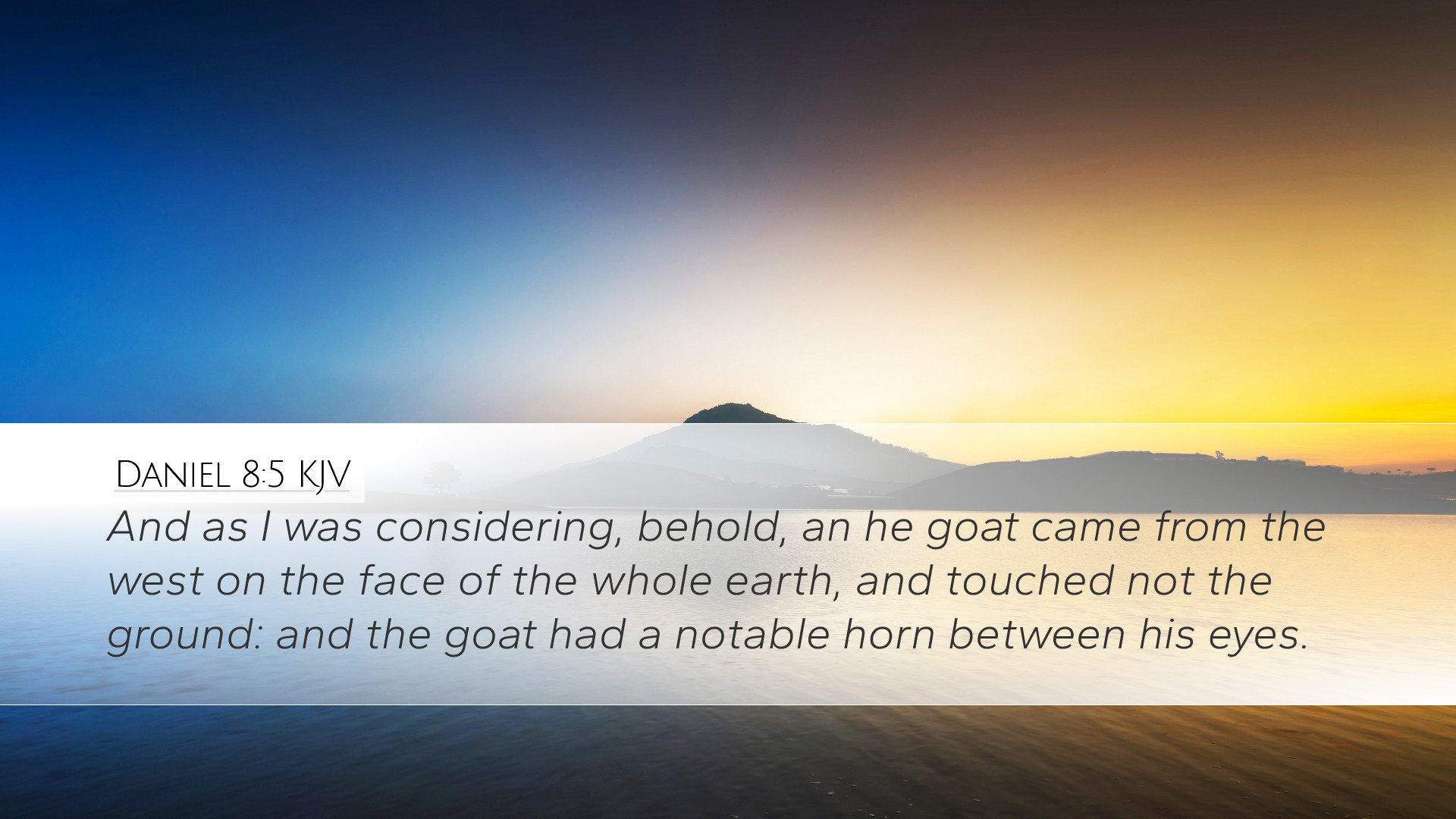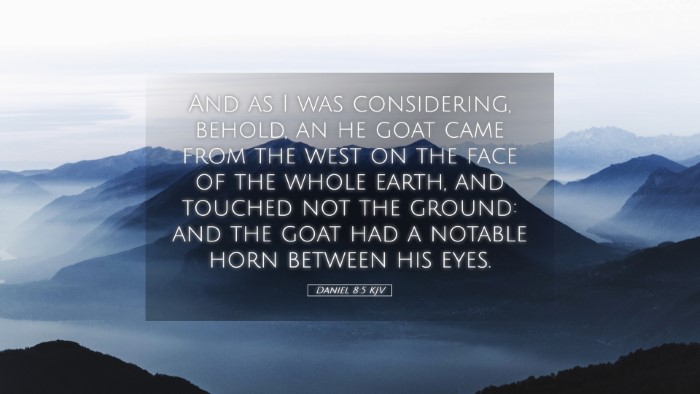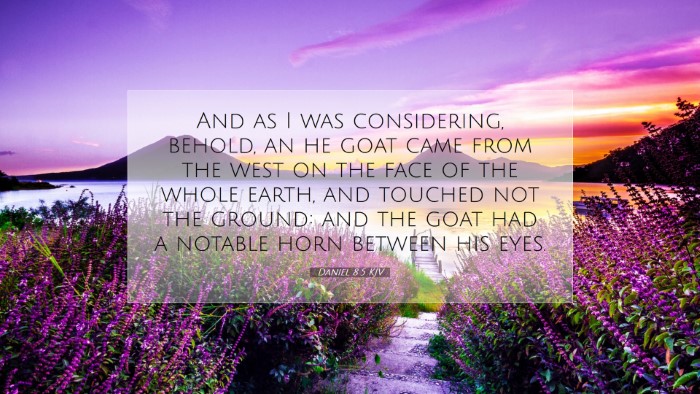Commentary on Daniel 8:5
Daniel 8:5 reads: "And as I was considering, behold, an he-goat came from the west on the face of the whole earth, and touched not the ground: and the goat had a notable horn between his eyes."
This verse is part of the apocalyptic vision given to Daniel, a prominent prophet during the Babylonian exile. It signifies the transition between the Babylonian Empire and the subsequent rise of the Medo-Persian and Grecian empires. To better understand the implications and significances of this imagery, we turn to several renowned public domain commentaries.
Contextual Overview
In the context of the Book of Daniel, this vision occurs in the reign of Belshazzar, king of Babylon. The vision is a precursor to the unfolding of future events concerning kingdoms and their impacts on the Jewish people. In chapter 8, Daniel receives more direct insights about the empires that will influence Israel, focusing particularly on the horn symbolizing leadership and power.
Insights from Public Domain Commentaries
Matthew Henry
Matthew Henry emphasizes the significance of the he-goat in this passage. He interprets the he-goat to represent the Greek Empire under the leadership of Alexander the Great. The movement of the goat "from the west" symbolizes the sudden and swift conquest of the Persian Empire.
- The Swiftness of Its Movement: Henry notes that "touched not the ground" signifies the rapid advance of the he-goat, which portrays the speed and effectiveness of Alexander's military campaigns.
- The Notable Horn: The notable horn between the goat’s eyes symbolizes Alexander himself, representing his singular power and authority over the Greek forces. This horn is both a figure of strength and of notable destiny.
Albert Barnes
Albert Barnes provides further insight into the symbolism of the he-goat. He points to the historical context and its prophetic significance, linking the he-goat directly to Alexander and the Grecian conquests.
- The Symbolism of the Goat: Barnes highlights that goats were often associated with aggression and powerful movements in ancient cultures. Thus, the he-goat serves as an apt representation of the militant nature of Alexander's leadership.
- Geographical Significance: Barnes discusses the phrase "from the west," emphasizing the geographical context of Greece relative to Persia and Babylon. Its western approach is a reflection of historical dynamics in the ancient Near East.
Adam Clarke
Adam Clarke offers a detailed exploration of the text, dissecting the nature of the he-goat and its movements. Clarke's analysis includes a deeper dive into the language and the prophetic implications for future nations.
- Literary Analysis: Clarke points out that the language used in this verse conveys not only physical movement but also represents formidable political and military strategies employed by Alexander.
- Prophetic Implications: Clarke also warns against viewing this prophecy solely through the lens of historical fulfillment, arguing for a continued relevance and application of the principles found in this vision concerning power dynamics in the world today.
Theological Reflections
The visions of Daniel, especially in chapter 8, convey profound theological truths about God's sovereignty over history. The rapidity of the he-goat's advance reflects God's providential control over nations and their rise and fall. This offers comfort to believers facing oppression, reminding them that God is aware of their struggles and has ordained the flow of history.
God’s Sovereignty
Understanding the depiction of the he-goat and the notable horn within the broader narrative of scripture highlights an important theological principle: God’s sovereignty is absolute. Even as empires come and go, the ultimate authority belongs to God. He raises leaders and brings down those in power according to His divine purpose.
Application for Today
For pastors and theologians, this passage serves not only as a historical account but as a reminder of the temporal nature of earthly kingdoms. The certainty of God’s reign calls for a response of faithfulness and dependence on His control amid the uncertainties of life and governance in the modern world.
Summary
In conclusion, Daniel 8:5 provides rich imagery that conveys critical historical and future implications. The he-goat symbolizes the aggressive and rapid expansion of the Greek Empire under Alexander the Great, while its theological significance speaks to God's control over human affairs. The insights offered by Henry, Barnes, and Clarke lend depth to our understanding and application of this prophetic vision.


